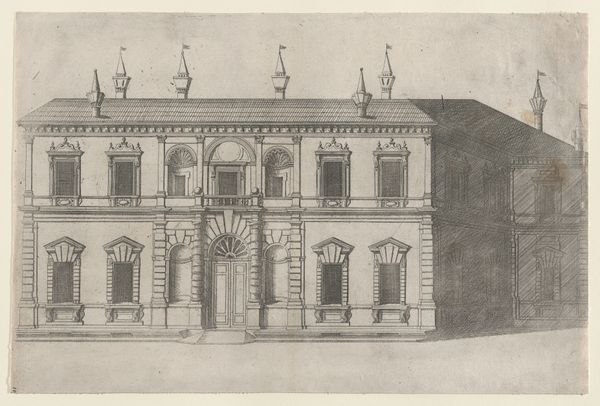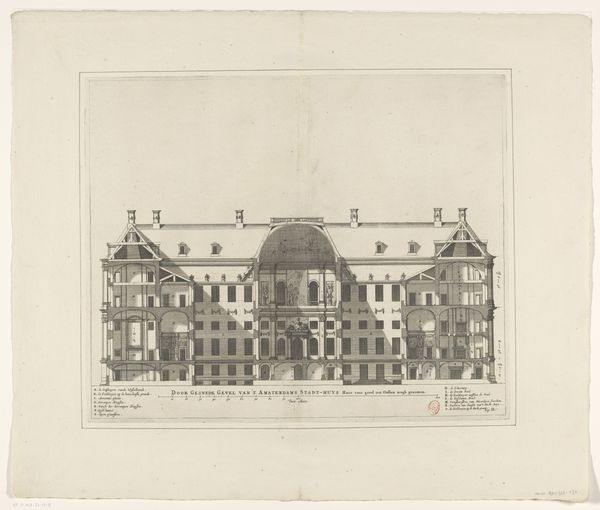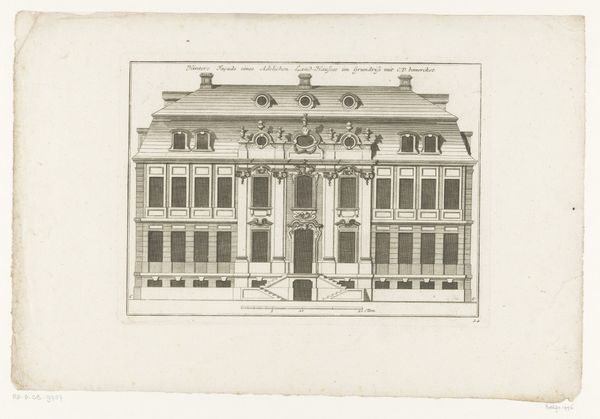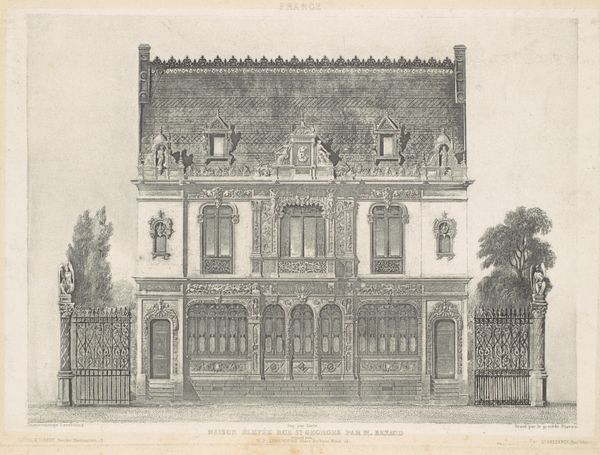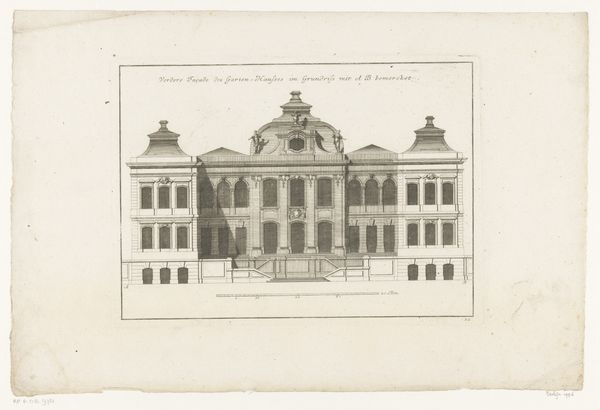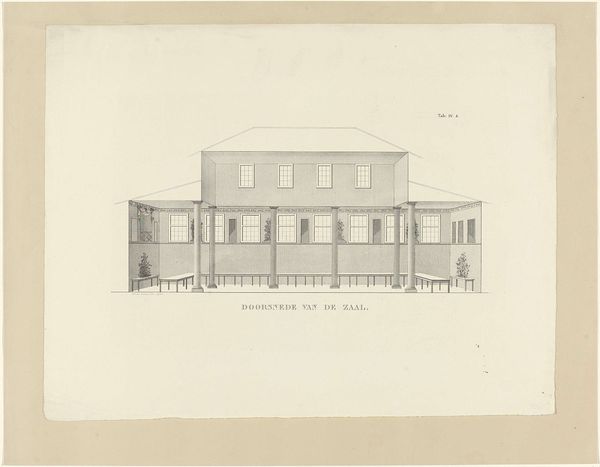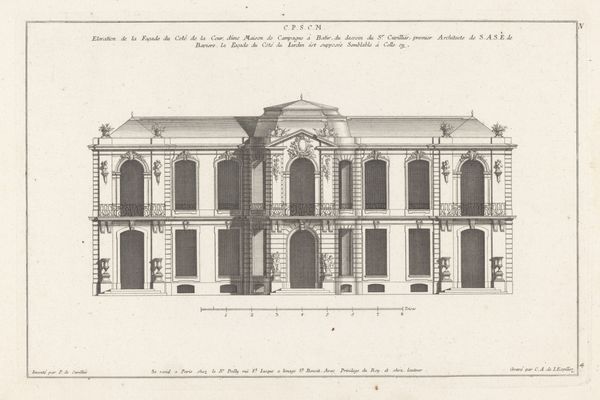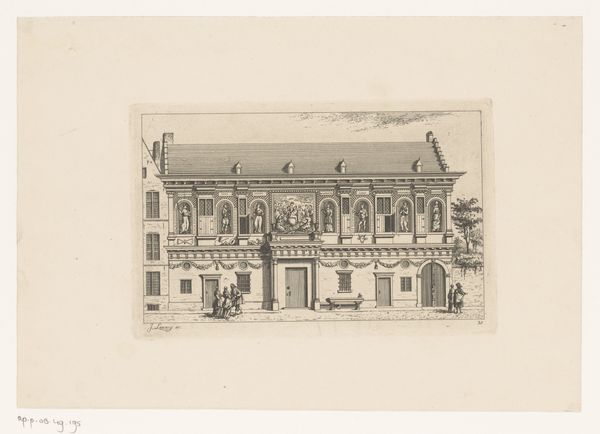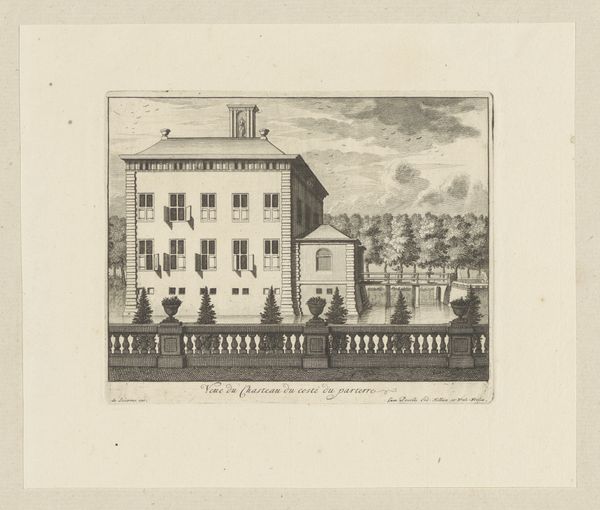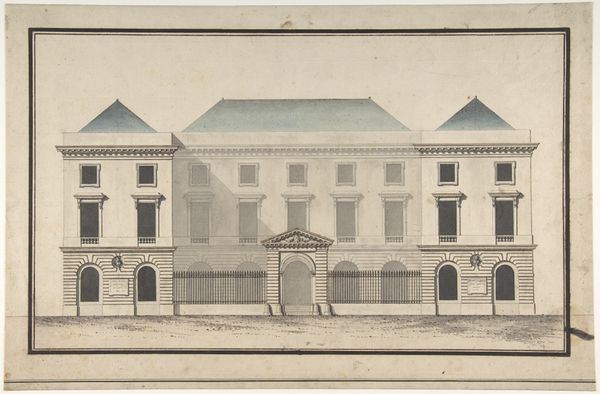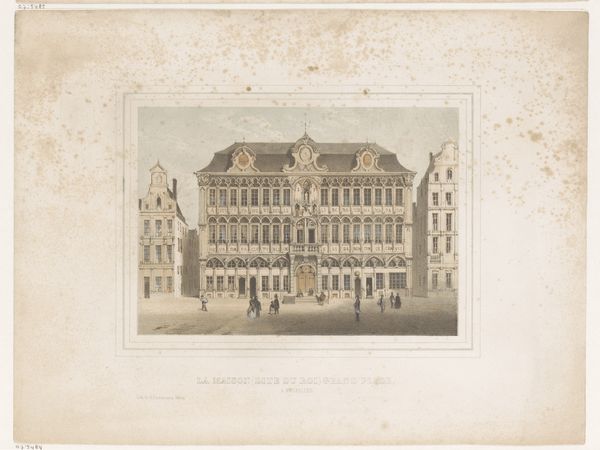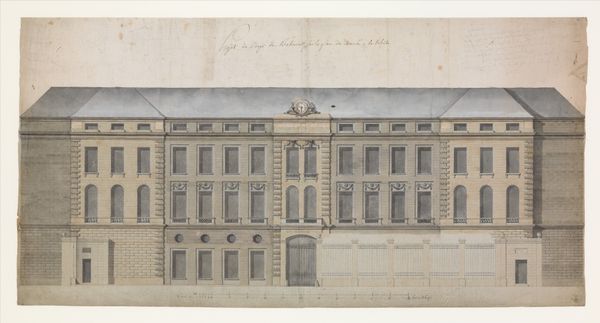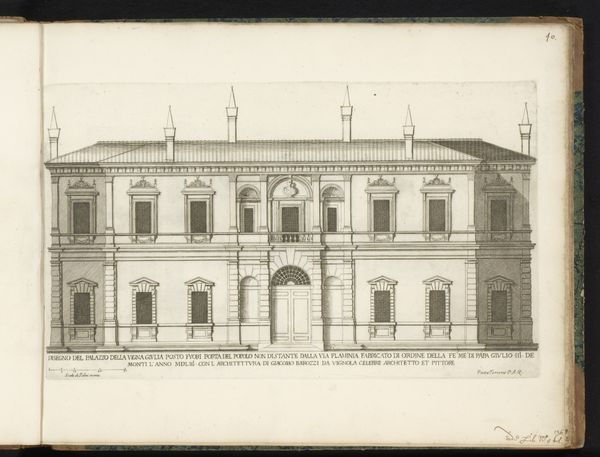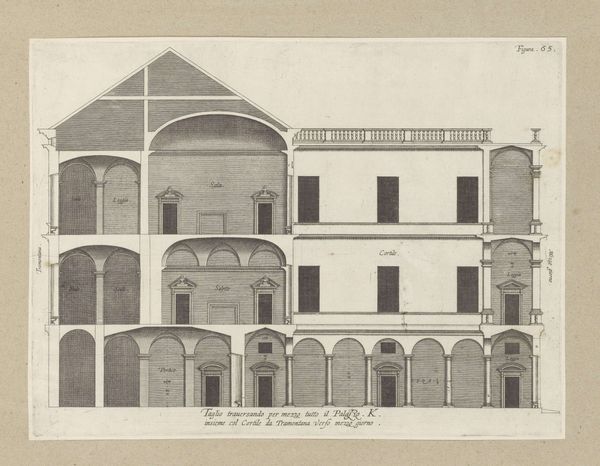
Huis van Constantijn Huygens van voren gezien met deel van het interieur 1639
0:00
0:00
theodormatham
Rijksmuseum
#
historical design
#
aged paper
#
toned paper
#
homemade paper
#
photo restoration
#
parchment
#
retro 'vintage design
#
old-timey
#
golden font
#
paper medium
#
building
Dimensions: height 232 mm, width 317 mm
Copyright: Rijks Museum: Open Domain
Editor: This is "Huis van Constantijn Huygens van voren gezien met deel van het interieur," created in 1639 by Theodor Matham. It’s currently held at the Rijksmuseum. What strikes me is the cutaway view—like a dollhouse revealing its secrets. What can you tell me about its cultural context? Curator: The cutaway view isn't just a design choice; it speaks volumes about the emerging role of domesticity and the public’s fascination with private lives in the 17th century. Constantijn Huygens was a hugely influential figure—a diplomat, poet, and advisor to the House of Orange. Seeing his house like this provides insight into the values of the Dutch elite. Consider: what does this reveal about the architectural aspirations of the time and the politics of representation? Editor: It seems almost...boastful? To display the inner workings of your home. Was this common? Curator: That's perceptive. Yes and no. Architectural prints were becoming increasingly popular, serving as both aspirational guides and status symbols. But this particular degree of transparency—of literally laying bare the infrastructure of domestic life—is less common, thus possibly more pointed. Notice how the facade still maintains a formal grandeur despite the peek into the interior. It begs the question: for whom was this image created, and what message was Huygens trying to send about himself and his place in society? Editor: So, it's a statement about power and influence, masked as a simple architectural rendering? I suppose it shifts my understanding entirely. Curator: Precisely. Matham’s print isn't just a picture; it's a curated glimpse into a world of privilege, reinforcing societal hierarchies through visual representation. Understanding the social and political dynamics at play unlocks the deeper meaning behind this seemingly straightforward image. Editor: I never would have considered the image in this light; it offers a valuable perspective, thank you! Curator: Indeed. It reminds us that art is rarely created in a vacuum, and considering the cultural and historical context is crucial for a more comprehensive understanding.
Comments
No comments
Be the first to comment and join the conversation on the ultimate creative platform.
